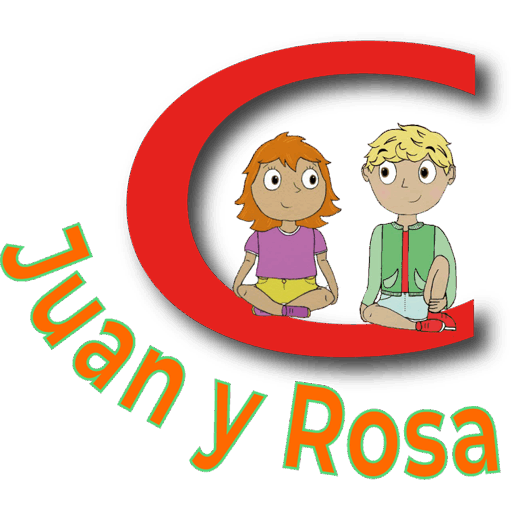INZAGE IN DE LEER- EN WERKBOEKEN
Inzage in hoofdstuk 1 van ieder leerboek en het overzicht
Om inzicht te krijgen in het leermateriaal hebben we voor u een overzicht gemaakt in PDF (download) en kunt u van elk boek hoofdstuk 1 downloaden. Zo krijgt u een beeld in de uitdagende wijze van Spaans leren voor de leerlingen met hoogbegaafdheidskenmerken in uw groep.
1. Deel 0: Soy Don Toro voor groep 3-5:
- Handleiding voor de leerkracht – (download)
- Werkboek leerling – (download)
- Begeleiding leerling – (Prezi’s)
2. Deel 1: Juan y Rosa están de vacaciones voor groep 5-7:
3. Deel 2: Juan y Rosa están en casa voor groep 7-8 (als vervolg op deel 1):
DE HANDLEIDINGEN VOOR DE LEERKRACHT
De handleidingen
Voor deel 0 is een uitgebreide handleiding geschreven bij iedere paragraaf van de leermethode. Voor deel 1 en deel 2 kunt u hier de handleidingen downloaden. Daarnaast is er een certificaat gemaakt om uit te reiken aan het einde van eht schooljaar waarop u kunt aangeven hoever de leerling gevorderd is met het Spaans leren. U kunt aan het einde van deel 2 een ander certificaat ontvangen voor de leerlingen van de auteur.
- Handleiding voor de begeleider – Juan y Rosa, deel 1 (download)
- Handleiding voor de begeleider – Juan y Rosa, deel 2 (download)
- Eind-certificado, Juan y Rosa, deel 1 (download)
- Eind-certificado, Juan y Rosa, deel 2 (download)
- De eindtoets, incl. luistertoets en de oplossingen van deel 1 (pagina 9 van de docentenhandleiding) en van deel 2 kunt u opvragen bij de auteur.
- Voor een compleet en gedetailleerd implementatiemodel van de drie delen op uw school is een presentatie te zien in Prezi (klik hier).
Ook voor de leerlingen hebben we handleidingen gemaakt om ze goed voor te bereiden op het leren van Spaans met de Juan y Rosa leermethode:
- Handleiding voor de leerling – Soy Don Toro (download)
- Handleiding voor de leerling – Juan y Rosa, deel 1 (download)
- Handleiding voor de leerling – Juan y Rosa, deel 2 (download)
DE DIGITALE LEEROMGEVING
De digitale leeromgeving van Juan y Rosa
Als u het lesmateriaal heeft besteld en ontvangen, krijgt u een wachtwoord voor de digitale leeromgeving van het deel waarmee uw leerlingen gaan werken. Hieraan zijn geen kosten verbonden en de leerlingen hebben dan toegang tot alle documenten die kunnen helpen en ondersteunen bij het leren van Spaans én tot alle website-links die vermeld staan in de boeken van de leermethode. Deze leeromgeving wordt binnenkort nog verder uitgebreid. Het zal leiden tot een verbetering van het Spaans leren en tot gemak dienen van de leerlingen en de leerkracht.
